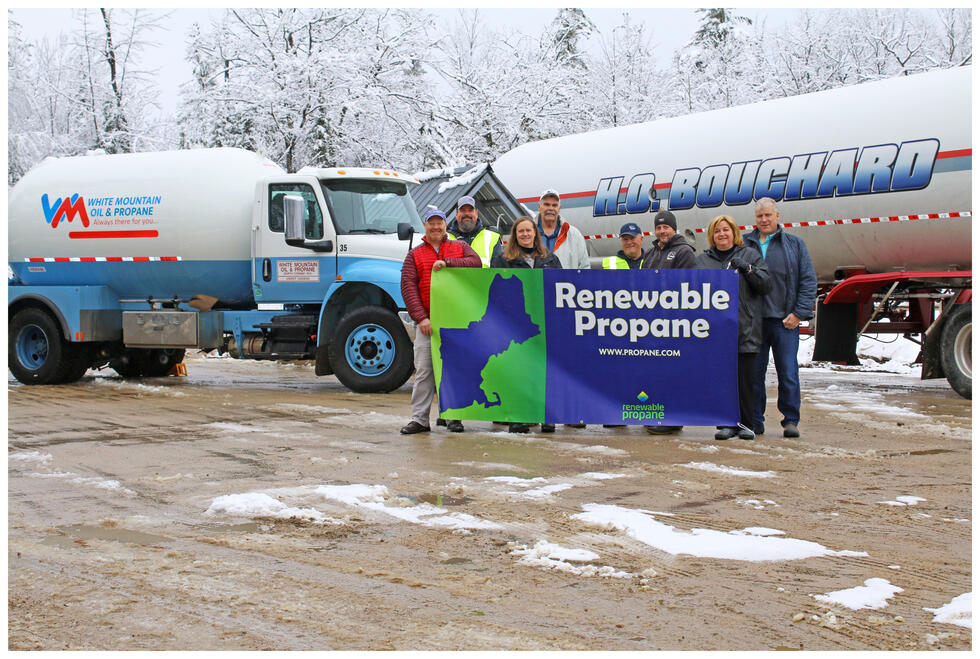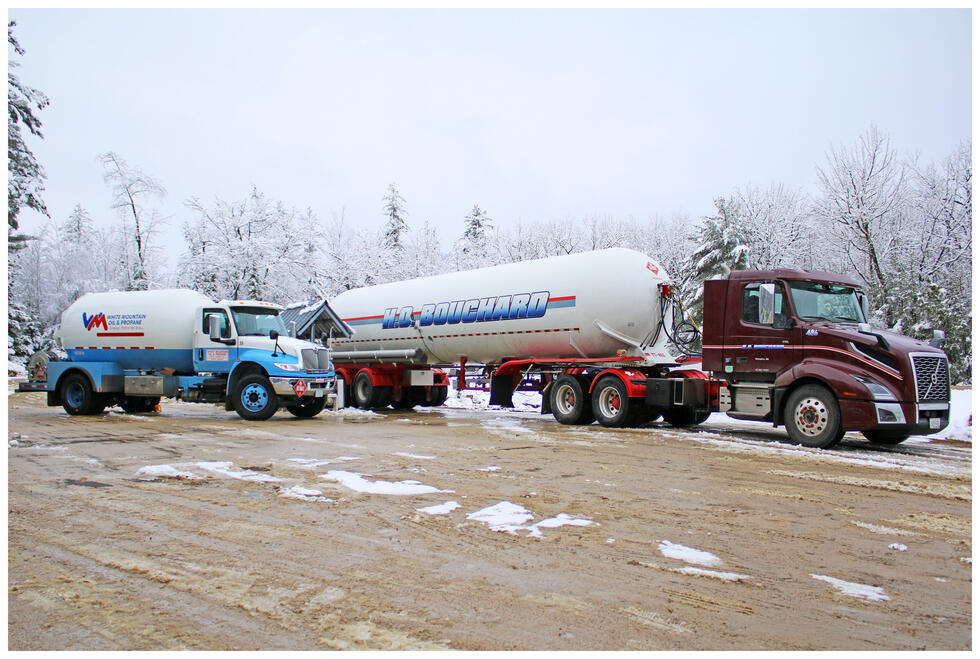
North Conway, N.H. (December 22, 2023) — White Mountain Oil & Propane delivered the first gallons of renewable propane to an established commercial company in the hospitality industry.
“I am excited to have worked with NGL Supply Wholesale from West Springfield, Massachusetts, and H.O. Bouchard Trucking Company from Hampden, Maine, to bring the first load of renewable propane into New Hampshire,” said Kim Callen, White Mountain Oil & Propane. “This is a step forward to bring greener energy not only to our customers, but also to the state.”
Renewable propane has no fossil fuel origin and is methane free. It’s created from a variety of renewable feedstocks, including camelina plant oil, vegetable oil, animal fats, used cooking oil, soybean oil, and animal tallow. New research also shows it can be made by breaking down plastics, such as polyethylene and polypropylene, and by converting captured carbon dioxide into renewable propane.
 With new innovations, renewable propane can be used alone or in innovative blends with other renewable or low-carbon energy sources — including conventional propane — to further reduce carbon emissions. At the point of combustion, renewable propane’s carbon intensity is four times lower than conventional propane and five times lower than diesel, according to the Propane Education & Research Council. Renewable propane has one of the lowest carbon intensity scores, meaning it can help businesses meet their environmental goals efficiently and reliably. Learn more about renewable propane at propane.com/about-propane/renewable-propane.
With new innovations, renewable propane can be used alone or in innovative blends with other renewable or low-carbon energy sources — including conventional propane — to further reduce carbon emissions. At the point of combustion, renewable propane’s carbon intensity is four times lower than conventional propane and five times lower than diesel, according to the Propane Education & Research Council. Renewable propane has one of the lowest carbon intensity scores, meaning it can help businesses meet their environmental goals efficiently and reliably. Learn more about renewable propane at propane.com/about-propane/renewable-propane.

